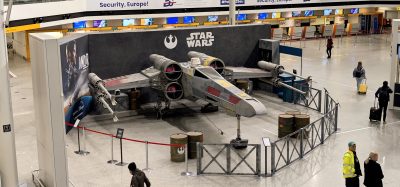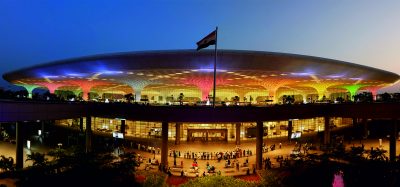Augmented reality brings new dimension to ATC controllers with SESAR project
Posted: 3 February 2018 | International Airport Review | No comments yet
The RETINA “Resilient Synthetic Vision for Advanced Control Tower Air Navigation Service Provision” is a research and innovation project that deals with the development of innovative tools for the airport control tower. The project grabs the idea of augmented vision and investigates its application to the on-site control towers.


SCREEN MEMORIES: The concept was demonstrated in January
The RETINA concept was demonstrated to potential stakeholders at the end of January at the Virtual Reality and Simulation Lab of the University of Bologna in Forlì.
The outcome of the SESAR-funded exploratory research project showed that augmented reality boosts air traffic control operations, particularly in low-visibility conditions. It confirms the expected benefits regarding:
- Increased situation awareness with increased head-up time and, as a consequence, increased safety, since the interface provides all needed information as head-up conformal symbols super-imposed to the out-of-the-tower view.
- More efficient operations especially in low visibility conditions, as the controller is provided with a head-up view of the air traffic similar to the enhanced vision currently used in the cockpit.
- Increased airport resiliency to low-visibility conditions as the overlays provided by means of augmented reality enhance the controller’s capabilities of managing air traffic in low-visibility conditions leading to overcome limitations on the airport capacity.”
In the validation work package, a platform was setup at the laboratory which imitates the environment of Bologna airport, Italy, where low-visibility conditions regularly impact the control operations.
A set of goggles, HoloLens, which allow controllers to see augmented reality 3D symbols overlaid on the out-of-tower view, were tested.
The concept was validated with the aid of human-in-the-loop, real-time simulations whilst the out-of-the-tower-view was provided in a semi-immersive reconfigurable virtual environment, capable of simulating any type of weather/visibility condition on any airport with a high degree of realism.
The validation outcomes confirm that the technology is mature enough be tested in a real operational setting, thereby demonstrating the effectiveness of the SESAR lifecycle, from innovation to solution.
The project’s consortium includes five partners: CRIDA, ENAV, EUROCONTROL, LUCIAD, University of Bologna (Project Coordinator).
Sara Bagassi, RETINA Project Coordinator and Assistant Professor in Aerospace Structures and Design at the University of Bologna, said during the testing: “We strongly believe that this technology will evolve in such a way that it will become accessible for other ATM applications in the coming years.”
Stay Connected with International Airport Review — Subscribe for Free!
Get exclusive access to the latest airport and aviation industry insights from International Airport Review — tailored to your interests.
✅ Expert-Led Webinars – Gain insights from global aviation leaders
✅ Weekly News & Reports – Airport innovation, thought leadership, and industry trends
✅ Exclusive Industry Insights – Discover cutting-edge technologies shaping the future of air travel
✅ International Airport Summit – Join our flagship event to network with industry leaders and explore the latest advancements
Choose the updates that matter most to you.
Sign up now to stay informed, inspired, and connected — all for free!
Thank you for being part of our aviation community. Let’s keep shaping the future of airports together!
Related topics
Air traffic control/management (ATC/ATM), Augmented reality (AR)/ Virtual reality (VR), New technologies
Related organisations
CRIDA, ENAV, EUROCONTROL, LUCIAD, SESAR, University of Bologna


















